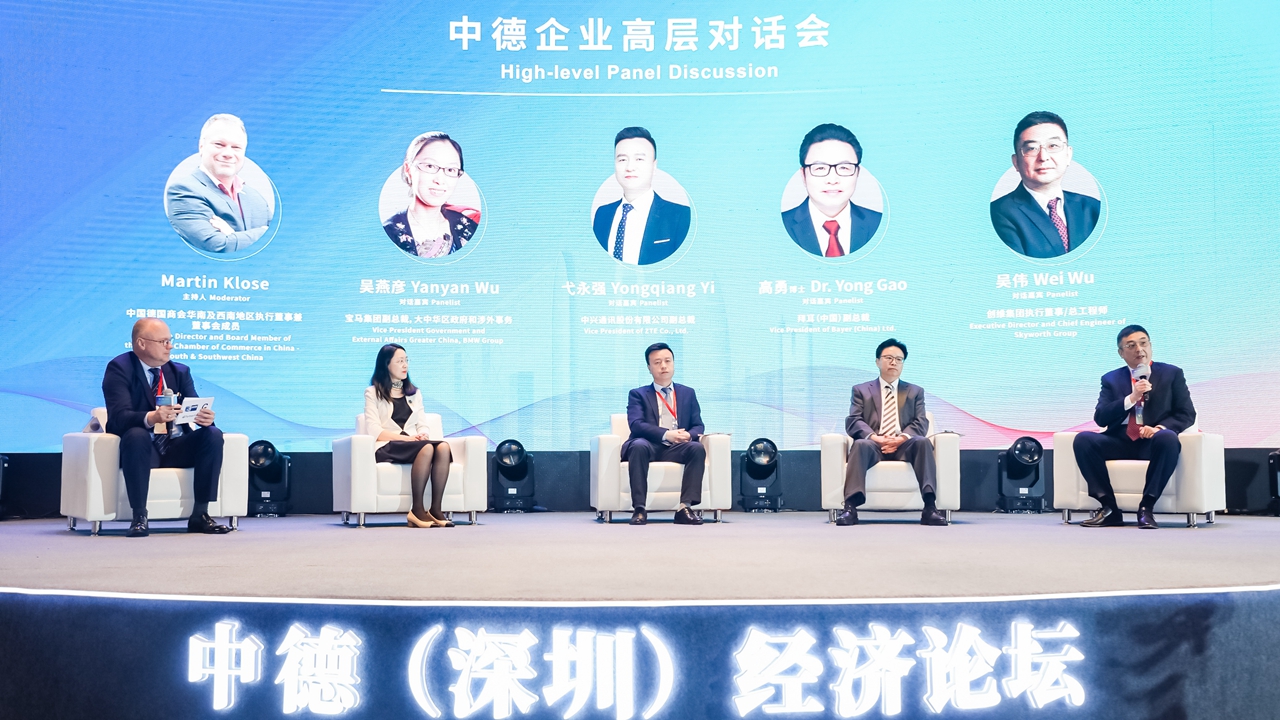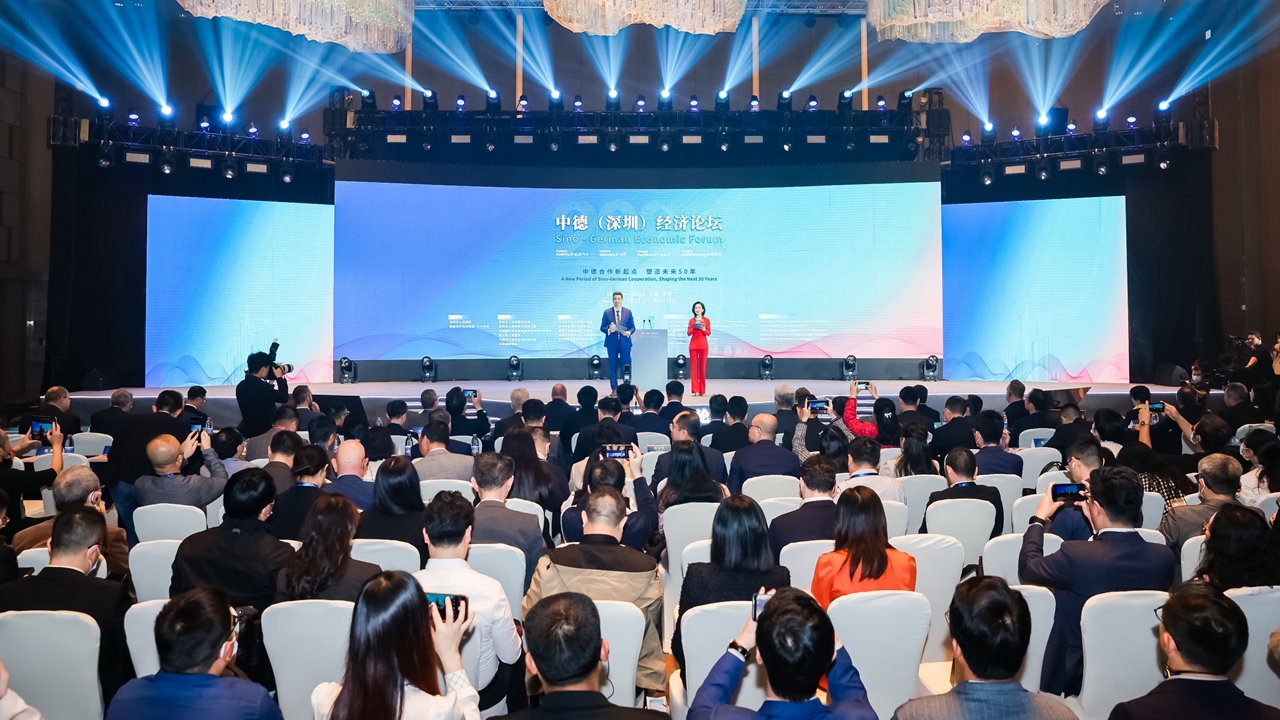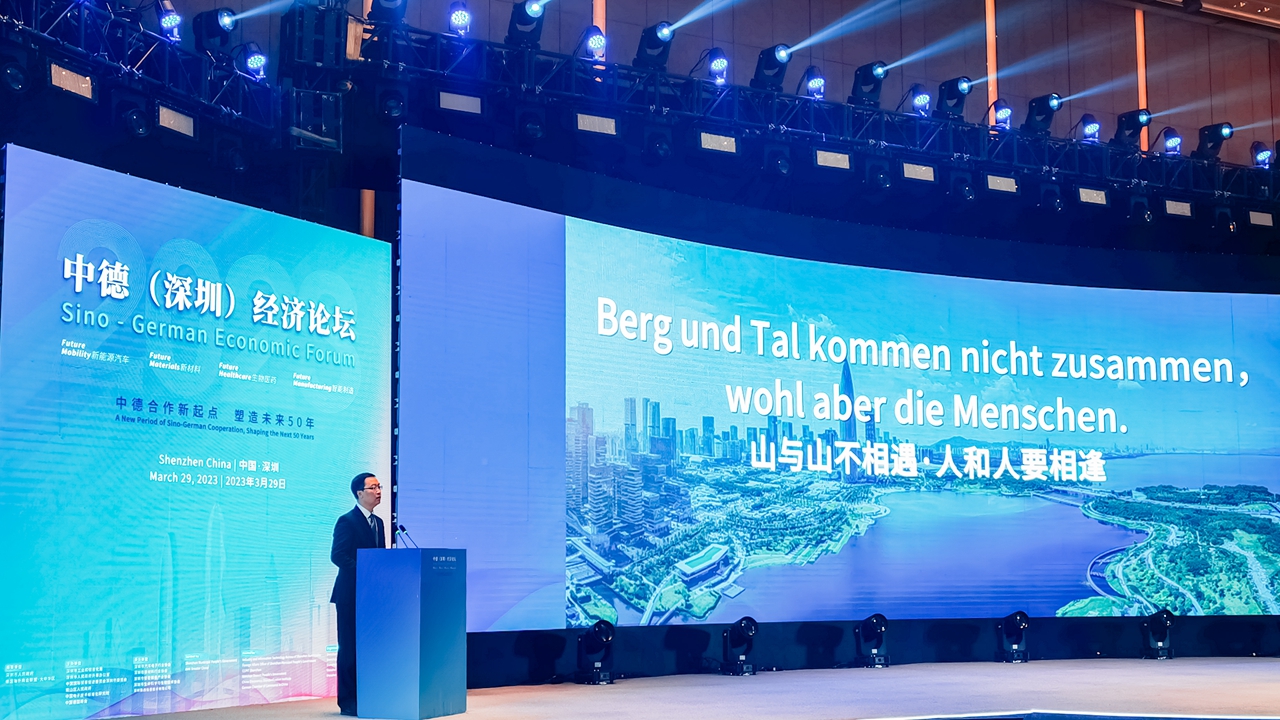SZ, German firms seek deeper cooperation
More than 100 German firms and 180 Shenzhen companies gathered at the Sino-German Economic Forum in Shenzhen yesterday, which aimed to forge closer business ties between China and Germany.
The forum was the first large-scale offline Sino-German economic exchange event in the last three years, inviting executives and industry leaders from both countries to discuss innovation-driven and future-oriented technologies.

Executives of Chinese and German enterprises at the High-level Panel Discussion session of the Sino-German Economic Forum in Shenzhen yesterday. Photos courtesy of the event organizer
The event featured one main forum and four sub-forums on new energy vehicles, new materials, health care and smart manufacturing. It also held one matchmaking session, providing a platform for participants to exchange the latest trends and discuss the path of future cooperation.
It is hoped that Shenzhen will further deepen cooperation with Germany in various fields, expand investment and trade, and strengthen cooperation in scientific and technological innovation, manufacturing and clean energy, Shenzhen Mayor Qin Weizhong said at the event.

A view of the Sino-German Economic Forum in Shenzhen yesterday.
Volker Treier, chief executive of foreign trade and member of the executive board of the Association of German Chamber of Industry and Commerce (DIHK), said in a video speech that large and medium-sized German enterprises have always thought highly of Shenzhen’s investment environment.
In 2018, DIHK established an innovation center in Shenzhen. Treier believed that there are still many cooperation opportunities between Germany and China, and that Shenzhen has always “played a key role in promoting foreign trade and innovation.”
The event saw 128 projects matched and five key projects signed, covering software information, vocational education and additive manufacturing.

Yu Xiquan, director of Shenzhen's industry and information technology bureau, introduces the city's business environment at the forum.
Germany is a world leading manufacturing power. Shenzhen shares similarities with many German cities in terms of manufacturing strengths.
Shenzhen’s industrial output accounted for over 30% of the city’s GDP for years. In 2022, the proportion reached 35.1%, as per official data.
Shenzhen has frequent economic and trade exchanges with Germany for decades. In 1997, Shenzhen and Nuremberg became sister cities.
Shenzhen Technology University and Germany’s University of Applied Sciences Würzburg-Schweinfurt have also joined hands to establish a Sino-German manufacturing institute to cultivate high-level skilled talents in Shenzhen.